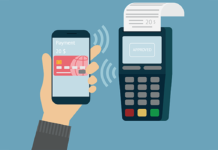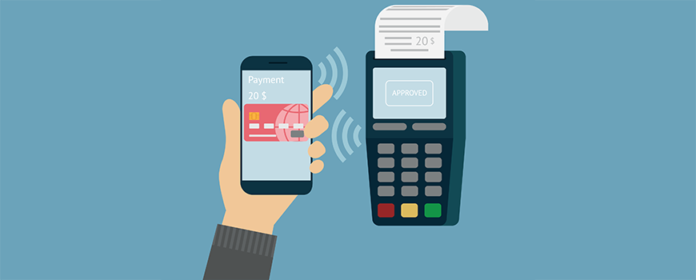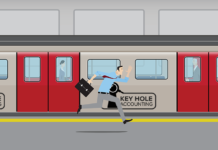News of the impending closure of local banking branches and ATMs for many may seem like nothing more than an inevitability. Technology is good at both creating and destroying traditional work, and banking is not immune to the potential upheaval caused by tech developments. Contactless payment, Apple Pay, and online banking are some of the principal causes behind the growing number of local bank branch and ATM closures; today we ask whether there is a downside to this golden period of banking convenience.
The Royal Bank of Scotland (RBS), which forms part of a wider group of banks that includes Natwest and the Queen’s bank Coutts, is to close 162 branches in England and Wales in the summer of 2018. The move comes as RBS decides to cut the dead weight of traditional bricks and mortar banks, citing the rise in customers using online banking as justification. It’s perhaps relevant at this point to remind readers that the taxpaying public (via our third-party representative, the government) owns a 62.4% stake in RBS (coincidentally, making the taxpayer the majority shareholder) yet we had no vote on the matter.
Why Are Banks Shutting Up Shop?
Irony’s banking would probably argue that their move to shut local branches is a shrewd piece of business; if a traditional retail business were to do the same thing, it would be seen as weakness. Luckily for the banks, they’re in something of a unique position in that they have relative stability and parity; the largest banks remain unchallenged by new competition and the government, and thus dictate the pace of change. There’s potential to cut costs through the closure of local branches, so that’s the flavour of the week, and by closing branches, online banking becomes the only option. Writing for the Guardian, Brett Scott said:
“In behavioural economics this is referred to as “nudging”. If a powerful institution wants to make people choose a certain thing, the best strategy is to make it difficult to choose the alternative.”
The savings banks stand to gain from the closure of local branches is worthwhile (as are the data insights – more on that later), and the banks are doing their utmost to convince people that the alternative is much better. Words like convenience are used in marketing material to illustrate this service has been designed to make your life easier. But convenience comes in many shapes and sizes, including a local high-street bank with real-life employees that can give advice.
Since all cash transactions have to be digitalised, it’s in the banks’ interest to cut out the messy paper aspect of money transactions. The banks are educating customers in why online banking and non-cash transactions are so much better, and then removing the choice; few customers argue, as advertising speaks to you as if you’ve already decided the alternative is both better and inevitable. Here’s a crazy thought – maybe it’s not.
Who Will ‘Digital Only’ Transactions Affect?
You may be thinking, why should I care? It’s a fair question – local banks have weird opening hours, and there’s always a queue. Brett Scott outlined three main points in this regard: those without bank accounts become further marginalised from society, the psychological impact of a cashless society is potentially significant, and tracking transactions mean the further erosion of your privacy.
In India, for example, the government rolled out a cashless society initiative overnight, which resulted in hitting the poorest hardest. Informal work that pays in cash (prevalent in Indian society) became all but impossible. The initiative was implemented to crime (like tax evasion), yet those without bank accounts depended on informal exchangers who traded the old currency for new at “predatory rates”. While the UK’s informal working network is significantly smaller, there is still a risk for those who have little choice than to work in a cash-only manner. In a cashless society, how would the disenfranchised pay for food and clothing, or rent somewhere to stay?
As we previously hinted, the psychological impacts of carrying the entire contents of your bank account may be beneficial for retailers, but it’s not so favourable for average earners. Bare with us as we briefly move into sociology. Hyperreality, a theory proposed by French sociologist and philosopher Jean Baudrillard, describes a social reality in which the world is made of simulations or copies. The idea of ‘an original’ is no longer possible; regarding banking, we see a process of simulated paying. Real money and genuine transactions are replaced with holding plastic to a machine. Self-service machines further remove us from the reality of handing over our hard-earned cash to a fellow human and eliminate “the pain of paying”. We’re slowly turning the reality of exchange into a play of fiction. Psychology studies confirm as much; a report from the American Psychological Association found that when paying with cash, we remember transaction; whereas our card payments fall out of our memory like Nespresso capsules fall from a contactless payment vending machine.
As for privacy, there’s little investigative work to be done here. Payments made using G-Pay, for example, combine Google’s love of data with a new stream – real-world transactions. The tech giant feeds off of your online and physical movements (via Chrome and Maps respectively); now it can look at how you spend your cash in the 3D world. Here’s Brett Scott again to drive home the point:
“Corporations, too, are drooling over the potential to monitor customer payment data. They can pass it thought their machine-learning systems to understand your traits and manipulate you with ever-increasing levels of subtlety.”
So the next time you see a cash machine, get some real notes out.
Want more industry insight? Stay up to date with Aspiring Accountants by subscribing to our weekly newsletter and get the info that matters to you delivered directly into your inbox.


















